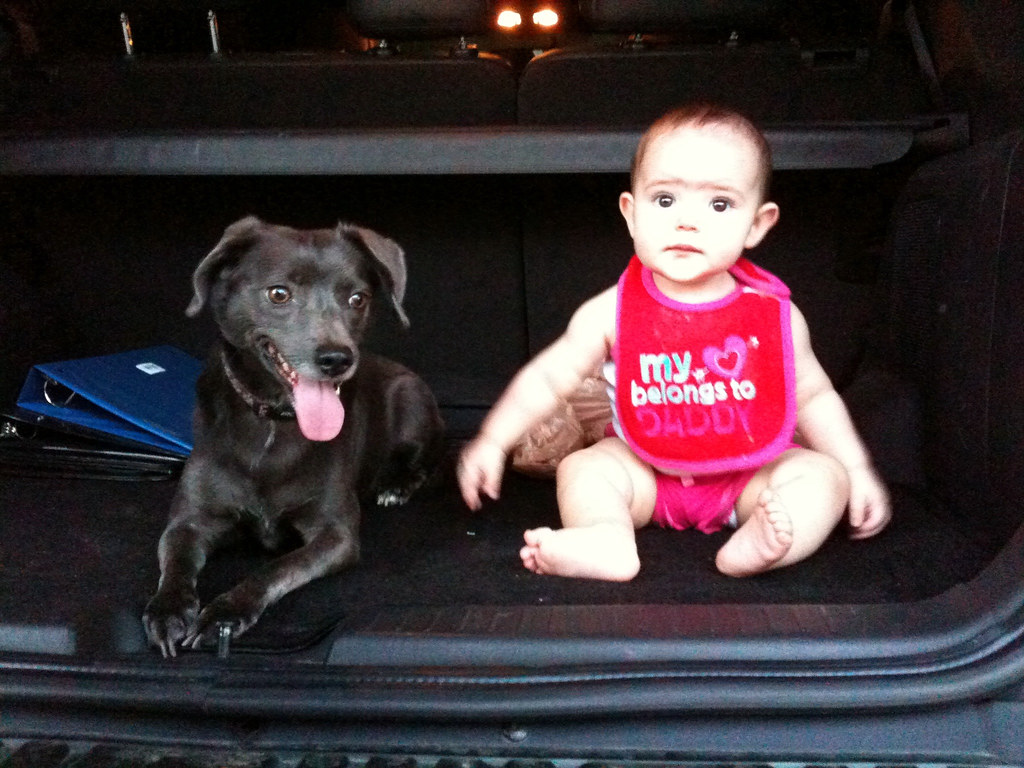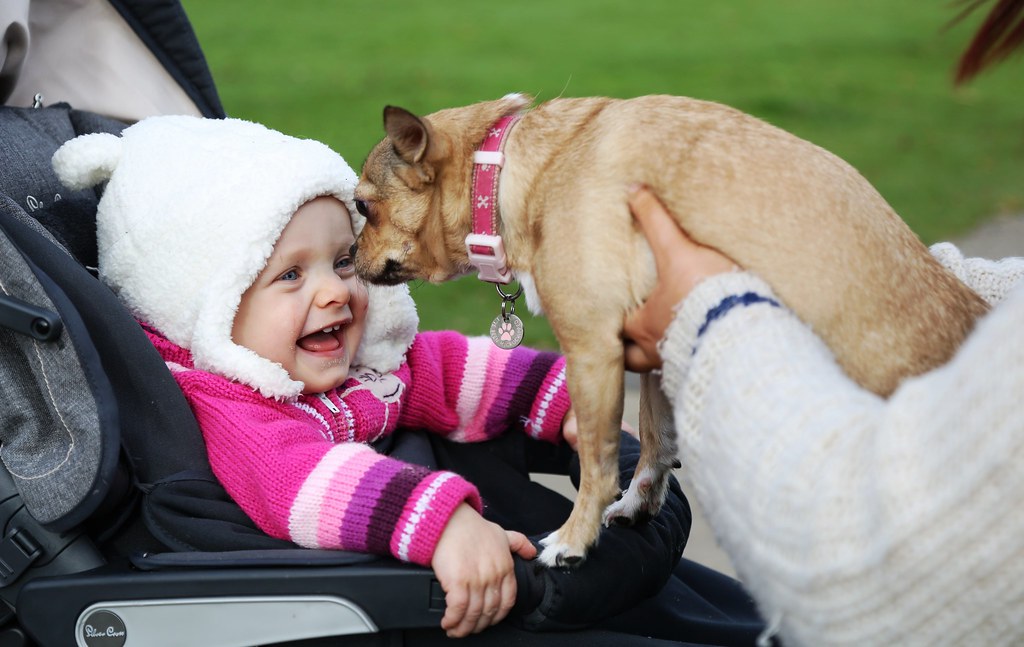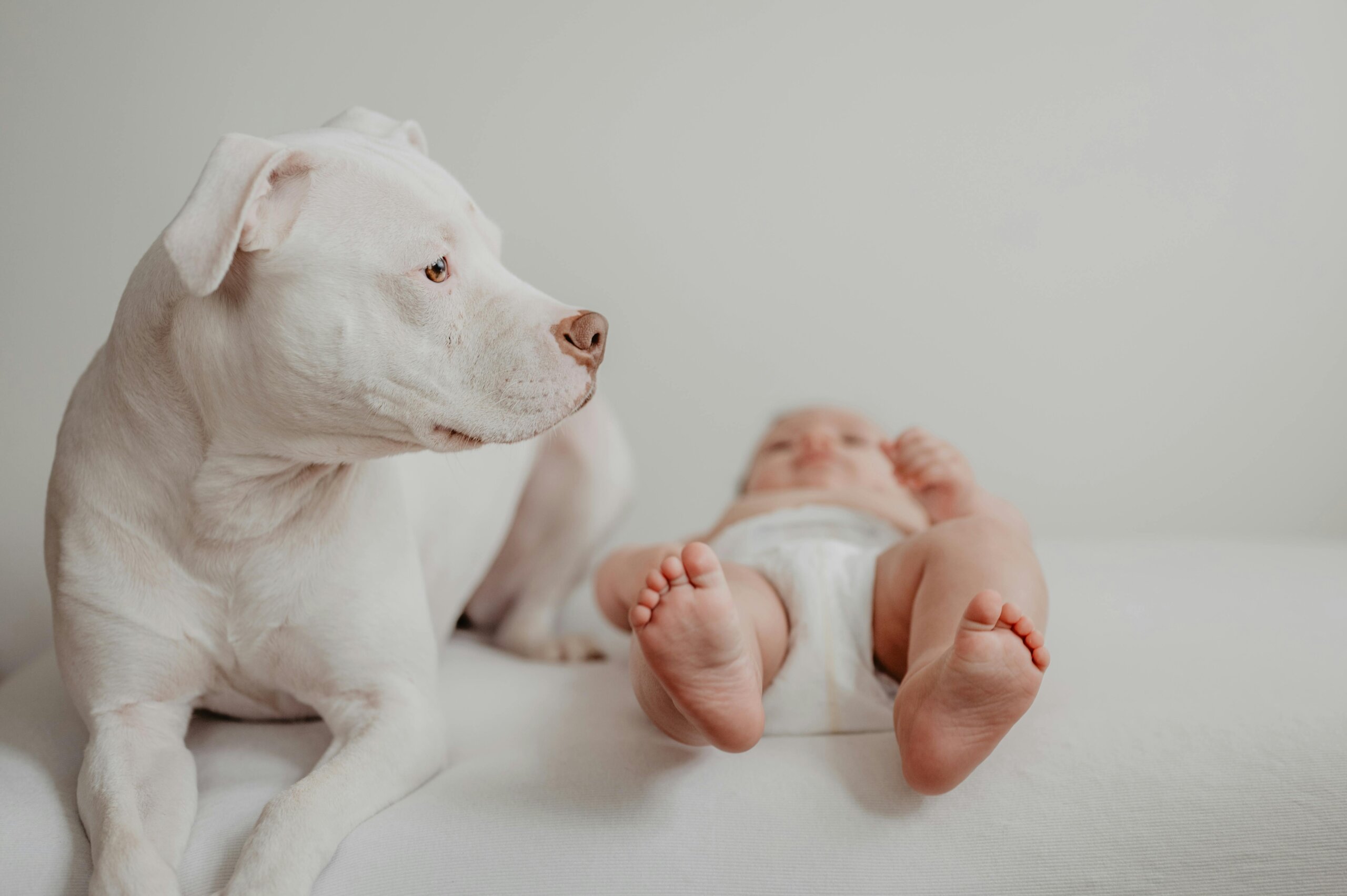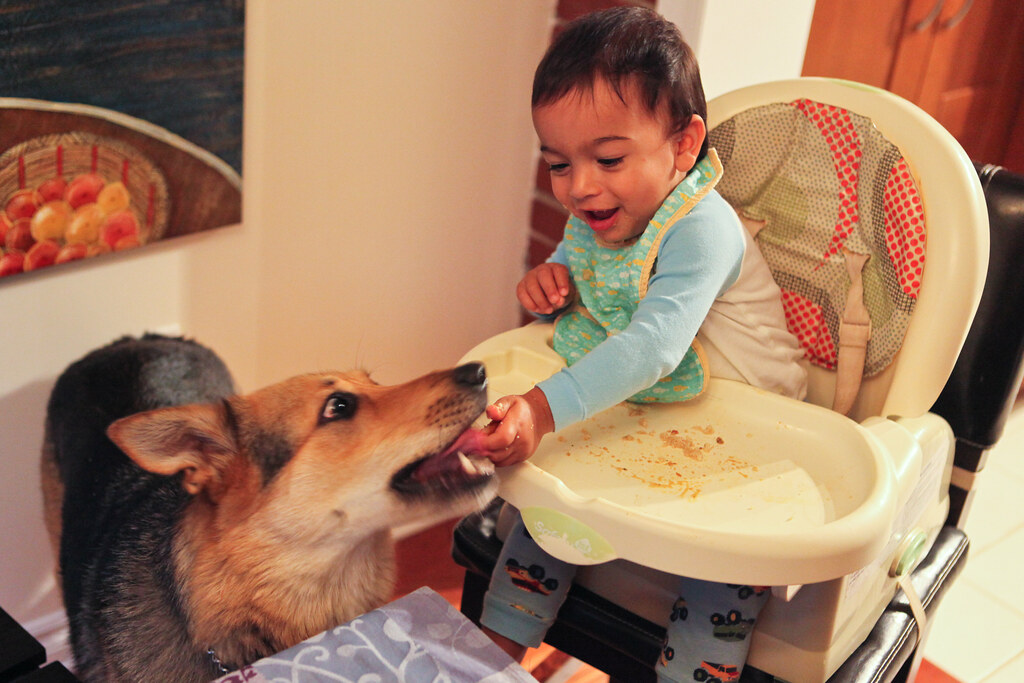Can Dogs Eat Baby Food
Introduction
Many dog owners often wonder, “Can Dogs Eat Baby Food?” This question highlights the need for pet owners to know their dog’s dietary needs and the safety of various human foods. Baby food is designed for infants, containing simple ingredients that sometimes appear appealing to dogs, especially if they have trouble eating regular dog food.
However, it is crucial to understand that not all baby food is safe for dogs. Some ingredients in baby food, like onions or garlic, can harm dogs. Therefore, knowing what foods are safe for dogs to consume is essential to avoid health issues.
Furthermore, understanding the nutritional differences between dog and baby food is vital. While baby food might seem convenient for certain situations—like when a dog is sick or recovering from surgery—it’s not a complete diet. It should not replace properly formulated dog food.
A veterinarian should always be consulted before introducing new meals. This careful approach ensures that your furry friend stays healthy and happy. Ultimately, being informed about what your dog can safely eat is key, reaffirming the importance of asking, “Can Dogs Eat Baby Food?”
Nutritional Aspects of Baby Food

Understanding the nutritional aspects of baby food is crucial for dog owners who wonder, “Can dogs eat baby food?” Knowing what is in baby food and how it compares to dog food, you can make better choices for your pet’s diet.
Common Ingredients Found in Baby Food
Baby food comprises ingredients that are easy for babies to digest. Here are some common ingredients you might find:
- Pureed Fruits: Baby food often includes apples, bananas, and pears. These fruits not only taste good but also provide important vitamins that can be beneficial.
- Vegetables: Many varieties contain carrots, peas, and sweet potatoes. These are nutritious and help in growth and development.
- Meats: Some baby foods include pureed meats like chicken or beef, which provide protein essential for a puppy’s health.
- Grains: Baby cereal made from rice or oats is also common. These grains give babies energy and can be a nice addition to dogs.
Always read the labels, as certain ingredients in baby food, like onions or garlic, can harm dogs.
Comparison of Baby Food Nutrients with Dog Food
When looking at baby food nutrients versus the nutrients found in dog food, there are some important differences:
- Protein Content: Dog food is specially made to have high protein levels, which is important for your dog’s health. On the other hand, baby food may have some protein, but usually not enough to meet your dog’s needs.
- Fats: Dogs require healthy fats for energy and a shiny coat. Baby food generally does not have enough fat for ongoing health, making it less suitable for dogs in the long term.
- Vitamins and Minerals: Dog food is crafted with specific vitamins and minerals that keep dogs healthy. Baby food can lack essential nutrients, like calcium and phosphorus, which are important for strong bones.
In conclusion, while baby food can occasionally be a fun treat for dogs, it’s important to remember that it does not provide complete nutrition. Therefore, “Can Dogs Eat Baby Food?” is a question best answered with caution, emphasizing that it never takes the place of a balanced dog food diet.
Safety Concerns

When considering “Can Dogs Eat Baby Food,” It is critical to comprehend the possible safety risks connected to some ingredients. Certain foods that are often included in baby food can be harmful to dogs.
Foods That Are Harmful to Dogs
Some ingredients that can be found in baby food are toxic to dogs. Here are the main culprits:
- Compounds found in onions have the potential to harm a dog’s red blood cells and cause anemia. Even small amounts of raw, cooked, or powdered onion can be harmful. It’s crucial to read baby food labels to ensure they do not contain any onion products.
- Garlic: Garlic is poisonous to dogs, just like onions. It can cause the same blood cell damage and even lead to gastrointestinal upset. Just like with onions, even a small quantity can be risky, so be sure to check ingredients carefully.
The Risks of Feeding Baby Food as a Regular Diet
Feeding your dog baby food regularly can lead to various health risks. While it might seem like a convenient option, here are several important considerations:
- Incomplete Nutrition: Baby food lacks many essential nutrients that dogs require for a balanced diet. As previously discussed, it may not provide sufficient minerals, vitamins, healthy fats, and protein, which are crucial for your dog’s overall health and well-being. Relying on baby food can lead to nutritional deficiencies over time.
- Weight Gain: Many baby foods are higher in sugars and carbohydrates than what dogs should be consuming. Feeding baby food regularly can contribute to weight gain, which can further lead to obesity-related health issues.
- Digestive Issues: Dogs have digestive systems that are different from those of humans. Feeding them foods meant for babies can upset their stomachs, causing issues like vomiting or diarrhea. It’s best to stick with dog-specific foods designed for canine digestion.
In summary, the question remains, “Can Dogs Eat Baby Food? ” It is essential to answer with caution. Baby food can occasionally be a treat, but it should never replace a dog’s regular balanced diet that satisfies every nutrient requirement. Always prioritize safety and consult your dog’s veterinarian before making big dietary adjustments, particularly if considering any baby food options.
When to Consider Baby Food for Dogs

While baby food should not regularly replace a dog’s balanced diet, there are specific situations where it might be beneficial. Understanding these circumstances can help dog owners make informed decisions regarding their pets’ dietary needs.
Situations Where Baby Food Might Be Beneficial
Recovery from Surgery
After a dog undergoes surgery, its appetite may be diminished, or it may experience discomfort that makes eating regular food challenging. In such cases, baby food can be a gentle option to help entice the dog to eat. Its smooth texture and mild taste can make it easier on their stomachs and encourage them to regain strength. However, ensuring the baby food does not include dangerous substances like garlic or onions is essential.
Picky Eaters
Some dogs can be notoriously picky eaters, often turning their noses to their standard dog food. Introducing baby food as a temporary solution can sometimes stimulate a dog’s appetite. Mixing a small amount of safe baby food into their regular food can blend flavors and entice even the fussiest eaters to consume their meals. Again, choosing baby food options that contain no harmful ingredients is crucial.
Recommendations for Choosing Safe Baby Food Options
When selecting baby food for dogs, there are important factors to consider to ensure it is safe and beneficial:
- Read Labels Carefully: Read the ingredients list carefully every time to avoid harmful additives. Avoid baby foods that contain onions, garlic, or added sugars, which can harm your dog’s health.
- Opt for Plain Varieties: Choose plain fruit or vegetable purees that do not have seasonings, sauces, or additives. Cooked fruits or vegetables like plain pumpkin or sweet potatoes can be good options.
- Check for Allergens: Some dogs may have allergies to certain ingredients, even those considered safe. After trying baby food, monitor your dog for symptoms such as swelling, itching, or other signs of an adverse reaction or gastrointestinal upset.
- Consult Your Veterinarian: If you are contemplating whether “Can Dogs Eat Baby Food” is appropriate for your pet, it’s wise to consult your veterinarian. They can offer advice depending on the particular medical requirements of your dog.
In conclusion, while the idea of “Can Dogs Eat Baby Food” can lead to beneficial situations such as recovery from surgery or addressing picky eating habits, it is important to demonstrate caution in selection and implementation. By carefully choosing suitable baby food and consulting with professionals, dog owners can make positive dietary decisions for their furry friends.
How to Introduce Baby Food to Your Dog

Introducing baby food to your dog can be beneficial when done carefully. Following the right methods and paying attention to your dog’s reactions are essential to ensure a smooth transition. Let’s explore some guidelines for safely incorporating baby food into your dog’s diet and how to observe for any allergies or adverse reactions.
Guidelines for Gradually Introducing New Foods
When introducing baby food to your dog’s diet, it’s crucial to do so gradually. Here are the steps to follow:
- Start Small: Mix a tiny amount of baby food into your dog’s regular food. This small quantity will help gauge whether your dog accepts the new addition. For instance, mix one teaspoon of baby food with your dog’s usual meal.
- Increase Slowly: If your dog seems to enjoy the taste and shows no distress, you can gradually increase the quantity of baby food over several days. A good rule of thumb is to increase it by one teaspoon every couple of days until you reach a suitable amount that fits your dog’s appetite.
- Mixing with Regular Food: Mixing baby food with regular dog food can make the introduction easier and more appealing. Dogs might be more inclined to eat if the new food is blended with something they already enjoy.
- Monitor Their Response: Consider how your dog reacts to the new baby food. Healthy and happy dogs will eagerly eat their food without hesitation. If your dog appears hesitant or refuses to eat, consider reassessing the baby food being offered.
Observing for Allergies or Adverse Reactions
When introducing baby food, it’s important to be vigilant about any signs of allergies or adverse reactions. Here’s what you need to watch for:
- Common Signs of Allergies: After introducing baby food, observe your dog for symptoms such as itching, swelling, or skin irritations. They may also experience gastrointestinal upset, manifesting as vomiting or diarrhea. If any of these symptoms arise, stop feeding the baby food immediately.
- Keep a Diary: Recording your dog’s food can help you track potential allergies. Note the type and amount of baby food introduced and any reactions observed. This record can be helpful for discussions with your veterinarian.
- Consult Your Veterinarian: If you observe any negative responses or your dog seems unwell after trying baby food, consult your veterinarian. They can offer knowledgeable counsel and direction on whether “Can Dogs Eat Baby Food” is appropriate for your pet.
In conclusion, while the question “Can Dogs Eat Baby Food?” is often asked by dog owners, introducing baby food can be a safe experience when approached carefully. Following these guidelines for gradual introduction and being vigilant for allergic reactions, dog owners can make informed choices about adding baby food to their pets’ diets. Always remember that the health and safety of your furry friend should be the top priority!
Conclusion
In summary, understanding whether “Can Dogs Eat Baby Food” is important for owners seeking to enhance their pets’ diets. Here’s a recap of the key takeaways:
Recap of Key Takeaways
- Baby Food Can Be Beneficial: Baby food can serve as a temporary solution for dogs recovering from surgery or for picky eaters. It can entice dogs to eat when they may be reluctant to consume regular food.
- Choose Safe Options: Opt for plain fruit or vegetable purees free from harmful ingredients like onions, garlic, and added sugars. Reading labels is essential to select safe baby food for your dog.
- Gradual Introduction: When introducing baby food to your dog, start with small amounts mixed with regular food. Gradually increase the serving size while keeping an eye on their reactions.
- Watch for Allergies: Watch for allergy symptoms or adverse reactions after introducing baby food. Symptoms like itching, swelling, or gastrointestinal issues should be closely observed, and if noted, you should stop feeding baby food immediately.
Emphasis on Consulting a Veterinarian
Before making any dietary changes, including introducing baby food, it’s crucial to consult your veterinarian. They can provide personalized advice depending on your dog’s specific health needs and ensure that diet modification is safe.
Given the complexities of canine nutrition, your vet can help answer the question, “Can Dogs Eat Baby Food?” by examining your dog’s health, potential allergies, and overall diet plan. This professional guidance ensures that any additions to your pet’s diet are enjoyable and nurturing for their health and well-being.
Finally, even if baby food might be a helpful companion to your dog’s diet, the primary goal should always be the health and safety of your furry friend. Making informed dietary decisions, involving your veterinarian in the process, and keeping observations at the forefront will ensure that your canine companion enjoys a happy and healthy life.
(FAQs) about “Can Dogs Eat Baby Food”
Is baby food safe for dogs?
Yes, baby food can be safe for dogs when it consists of plain fruits or vegetables without harmful ingredients like onions or garlic.
What types of baby food can I give my dog?
Opt for plain, pureed fruits and vegetables, free from additives, sugars, or toxic ingredients.
How much baby food can I feed my dog?
Gradually increase the amount after starting with a tiny amount mixed with their usual diet while monitoring for adverse reactions.
YOU MAY ALSO LIKE:
What Should I Feed My Husky?
Corgi Feeding Guide
What to Feed a Diabetic Dog
Tips for Dogs with Sensitive Stomachs
Boxers Allergies and Skin Allergy Guide
Is Iams a Good Dog Food
Can Adult Dogs Eat Puppy Food
What is Chicken Meal in Dog Food
What is The Best Meat for Dog Food
Is Blue Buffalo Good Dog Food
Complete Guide to How Much Fresh Food to Feed a Dog
How Much Food for 60 lb Dog
How much Cesar Dog Food to Feed
How good is blue buffalo dog food
How Expensive is Farmer’s Dog Food
How Long is Canned Dog Food Good for After Opened
How Long Does a Bag of Dog Food Last
How Much Does Sundays Dog Food Cost
How to choose the best dog food for Huskies
How Much Does Cup of Dog Food Weigh
How to Treat Dog Food Poisoning at Home
How Much is Sunday’s Dog Food?
How Much is Ollie Dog Food in a Month?
How to Choose Dog Food
How Much Pumpkin to Add to Dog Food
How Much Does Farmers Dog Food Cost?
How Long Can Wet Dog Food Sit Out?
How to Soften Dog Food
How to Keep Dogs Out of Cat Food
How to Give Dog Pills Without Food
How to Get my Dog to Eat Dry Food
How to Keep Ants Out of Dog Food
How Much Does Dog Food Cost
How Long to Soak Dog Food
How Much Homemade Dog Food to Feed
How Much Wet Food to Feed a Dog
How to Transition Dog Food
How to Stop Food Aggression in Dogs Towards Other Dogs
How many cups of food should I feed my dog?
How to Stop Food Aggression in Dogs
How Many Cups in a Pound of Dog Food
How Long Does it Take a Dog to Digest Food
Why is My Dog Always Hungry
How Much Protein is in Dog Food?
How to Make Dog Food
how long to feed dog puppy food
What is The Cost to Make Homemade Dog Food?
How to Make Homemade Raw Dog Food
How to Make Homemade Dry Dog Food
How to Prepare Dog Food at Home for Senior Dogs
How to Train a Dog That is Not Food-Motivated
How Much Food Should I Feed
How To Store Dog Food
How Much Time Can a Dog Survive Without Consuming Water
How Long Can a Dog Survive Without Food?

